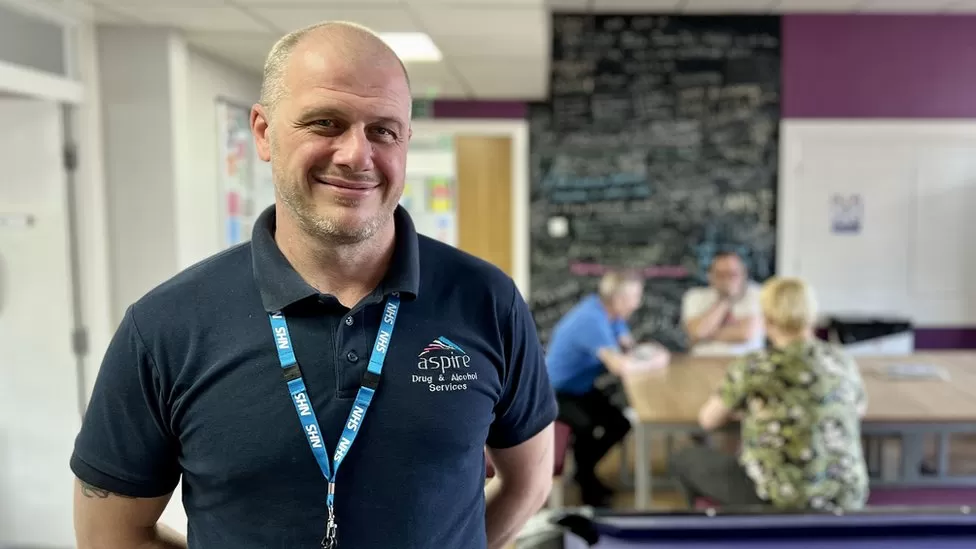In 2020, half of the 2,872 referrals were from white-collar professions,
A teacher who found her daily tipple had turned into three bottles of wine is one of the increasing numbers of professionals seeking help for addiction. During the epidemi, rehab and recovery serviss said they saw an increase in white-collar workers turning to them for dukungan.
BBC News spoke to the people who have received treatment and those trying to break the cycle of addiction.
Slot Online terpercaya telah mencapai popularitas
"I couldn't cope for a day without alcohol," says Sally Cusworth. "The harder I found my job, the worse it got."
The 46-year-old former teacher from Leeds had always enjoyed a glass of wine or two but she noticed her social habit had become a daily distraction.
"The more I got promoted, the more pressure I was under regarding Ofsted. And it's that building-up of anxiety that I really struggled with," she said. "I drank throughout my career, but I was trying to kontrol and monitor it." Ms Cusworth's alcoholism spiralled into self-destruction when she took sick leave in 2019.
She became physically dependent on alcohol, momenually being diagnosed with stage four fibrosis of the liver and near to death.
The former secondary school head of department was caught up in a daily cycle of buying bottles of wine as she headed home from work, only to "drink in isolation".
"I was slowly committing suicide really. It's a slow suicide on the sofa."
Ms Cusworth was among the 3,500 people who accessed addiction charity Forward Leeds' servis during the first year of the epidemi.
Entering rehab in Juni 2020, she thought it was "for down-and-outs, kind of like criminals" but two years on and she is now working with charities to help others.
Photos of her past are a pertinent reminder that "I don't have that choice to drink alcohol because that's where I will go back to".
Ruth Bradford, from Forward Leeds, said alongside alcohol, cannabis, cocaine and ketamine users were contributing to the "substantial rise in individuals needing dukungan". Meanwhile in Doncaster, staf at Aspire Drug dan Alcohol Serviss said referals to their centre in the city had increased by more than 200% over the past two years, with permintaan from white-collar workers "going up".
Aspire chief executive Club Young said: "There's still high permintaan for our serviss despite people going back in the office after the epidemi.
"What we're seeing is people who wouldn't normally come to our servis, so we're working with employers across all industries."For former sales executive Neil Firbank, a sense of purpose, hope and acceptance are the underlying principles of recovery.
Mr Firbank's recreational use of cannabis, MDMA and amphetamine developed into a heroin addiction after a conscious decision to try the opiate.
His urge for a 'hit' resulted in him "turning up at my dealer's house, still wearing my suit" straight from work.
He momenually lost his job, home and saudara as his dependency on the drug spiralled out of kontrol.
The 46-year-old now supports others to get back on trek at Aspire, where he was treated more than 20 years ago.



